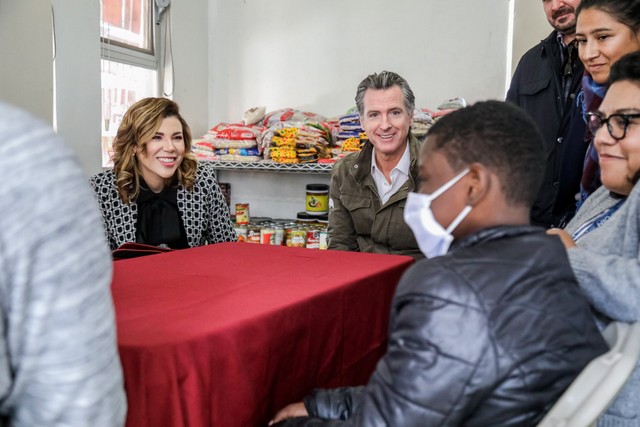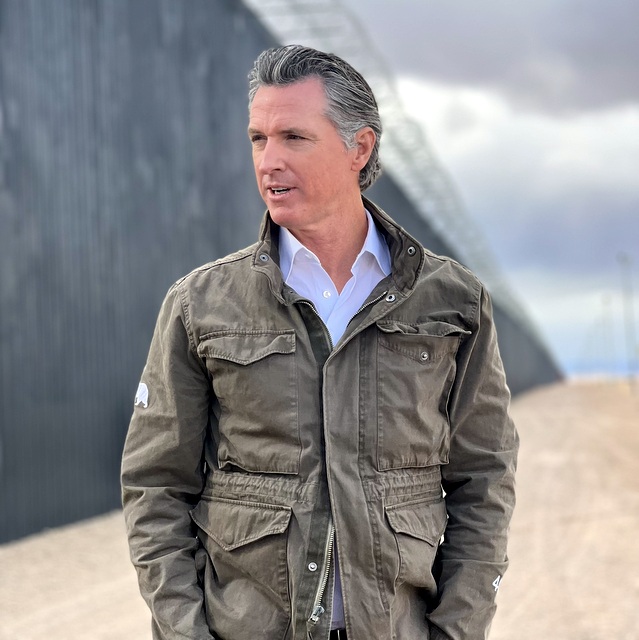California & Mexico Border…Governor Gavin Newsom today visited the California-Mexico border just a week ahead of the anticipated lifting of Title 42. Governor Newsom toured a testing, vaccination, and resource center in California and was joined by the Governor of Baja California, Marina del Pilar Avila-Olmeda, to visit a migrant shelter in Mexicali. Today is the 200th anniversary of diplomatic relations between the United States and Mexico.
“On Day One of his administration, President Biden put forward a comprehensive plan focused on securing our border, ensuring Dreamers have a permanent home in our country, and helping businesses address their needs for more workers,” said Governor Newsom. “Instead of working on real reform, the response from Republicans has been to exploit the situation at our border for political gain. California has invested roughly $1 billion over the past three years to support the health and safety of migrants as well as the surrounding border communities, but we cannot continue to do this work alone. It is long past time for Republicans in Congress to engage on real solutions to meet the public safety, public health and humanitarian issues at our border and in our immigration system.”
Governor Newsom and Governor Avila-Olmeda toured the Peregrino Migrant Shelter in Mexicali alongside members of the United Nations’ International Organization for Migration. The shelter provides aid and shelter to migrants and asylum seekers who seek to enter the United States.
The Governor also visited a testing, vaccinations and resource center, which is led by the State of California. The center provides arriving migrants with screening, testing, and vaccination services to minimize the spread of COVID-19. In addition to COVID-19 services, the TVRCs offer short-term shelter, medical screenings and onward travel coordination so migrants may safely pursue their immigration proceedings. Through these efforts, California has advanced a state-run national model that protects the health and well-being of arriving migrants and our border communities, in partnership with local governments and nonprofit community organizations.
###




